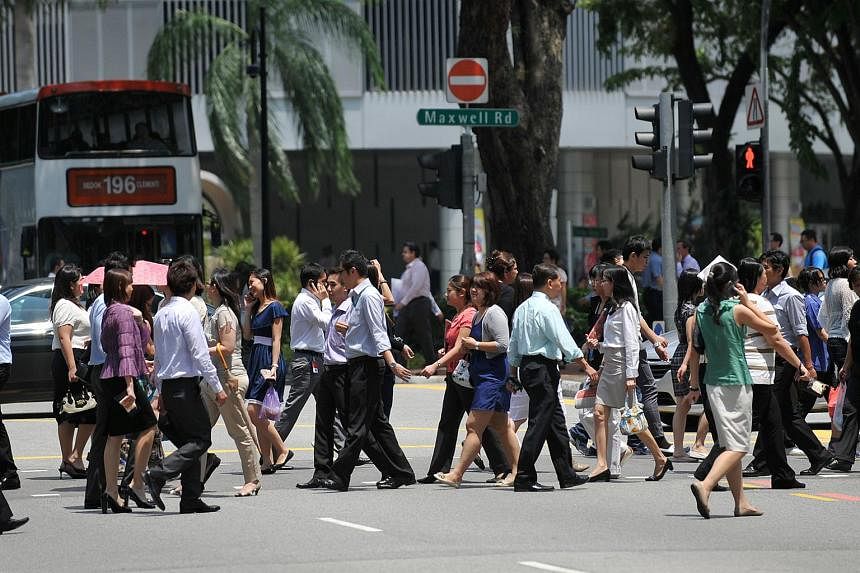About $2.2 billion has been handed out since the 2013 launch of the Wage Credit Scheme, a government initiative to help businesses subsidise wage increases for low- income workers in a tight labour market.
However, 53 employers have also been caught for abusing the scheme and have been denied the wage credit, or had it clawed back.
The Ministry of Finance (MOF) said these employers were unable to produce supporting documents for the wage hikes, or even proof that they were employing the workers in question.
Four of the 53 have been reported to the police so far, as they are suspected of providing false information or even hiring phantom workers. Said an MOF spokesman: "Where there are irregular or significant wage changes that could suggest employer-employee collusions, investigations will be conducted."
Singapore Human Resources Institute president Erman Tan said he had heard of errant employers falsely inflating their wage increase claims, perhaps colluding with staff to pay them back, or taking it out of their expense claims.
Some, he said, could even be including in their headcount people who do not even work for them.
Under the current scheme, the Government co-funds 40 per cent of wage increases. The payouts are credited automatically to employers who, in the previous year, increased the wages of workers earning $4,000 a month or less.
More than 85,000 employers qualified for the scheme this year, up from 74,000 last year.
At least two banks are ploughing their payouts into development programmes for employees.
United Overseas Bank is spending a third of its $3.8 million grant on a health and wellness programme, with the remainder going towards a training initiative.
DBS Bank will use its wage credits for staff training programmes, which will focus on areas such as digital skill sets and managing multi-generational differences.
Meanwhile, small and medium- sized enterprises (SMEs) received about three-quarters of the $1.4 billion disbursed in March.
Mr Paul Lim, chief executive of security firm Soverus Group, said that while he would have increased his workers' wages anyway, the scheme enables him to double their increments.
Some SMEs, such as frozen food manufacturer CS Tay Foods, use their payouts to host welfare events like functions and dinners to keep staff motivated.
Others, such as family business Seng Heng Engineering, are investing the subsidies in increased automation and machinery upgrades.
Association of Small and Medium Enterprises president Kurt Wee said: "I don't think SMEs have been blatantly increasing wages just because of the scheme. A lot of SMEs have also been careful to move it in line with productivity improvements."
Set to expire this year, the scheme has been extended to 2017, but with the rate of subsidy halved to 20 per cent.


